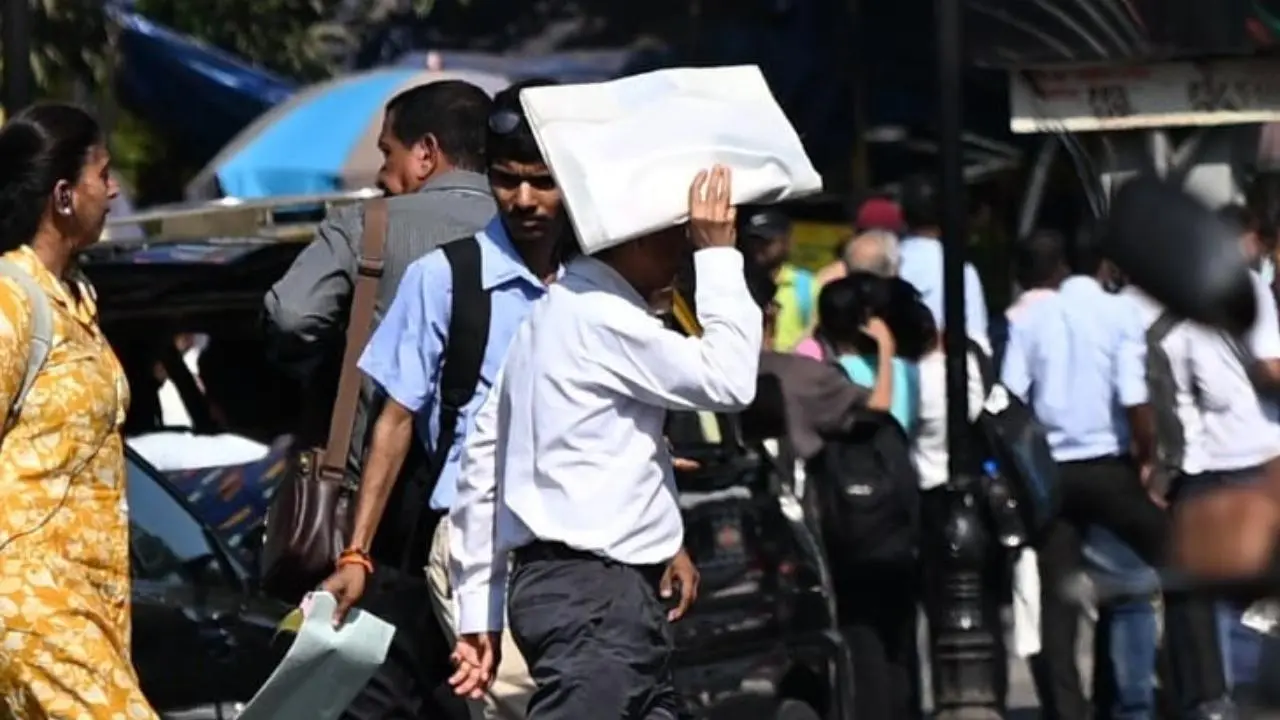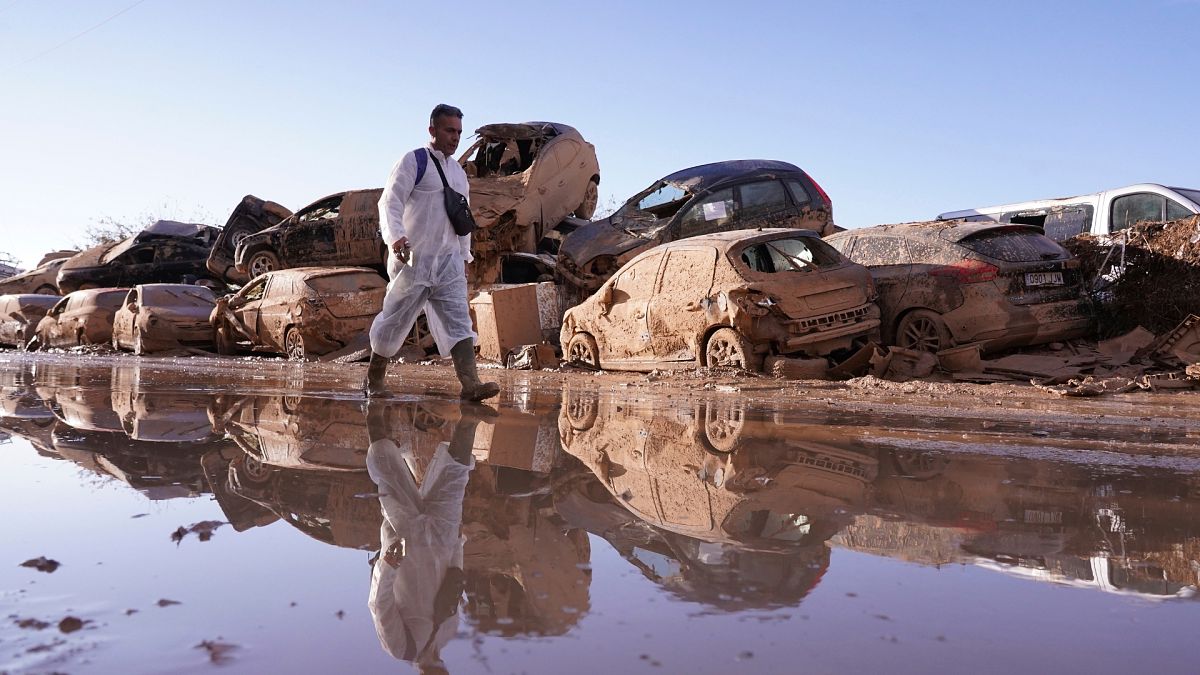Logan Canyon • On the first day of April at Beaver Mountain ski area, it was clear winter was not ready to give way to spring. Signs of the impending transition dotted the northern Utah hill: Despite the thick layer of fresh powder, skiers and snowboarders were sparser than the snowpack and hand-scrawled signs at the base of lifts advertised “Marge’s annual bikini and weenie day.” At times, the sun warmed the slopes enough to render a jacket unnecessary.
But then the clouds rolled over, and snowflakes would fall again in heaps. Inside the tiny, wood-shingled ticket shack at the base of the mountain, a similar struggle was playing out. Along one wood-paneled wall is the day-ticket window from which the ski area’s owner has greeted guests and guided them through the art of attaching their sticky tickets to the wire wickets nearly every day for the past 60 winters.

Along an adjacent wall, no more than two ski lengths away, perches a shiny silver monitor with a bright screen and a scanner. It reads and processes the plastic RFID cards the ski area now uses as season passes. If she had her way, 83-year-old Marge Seeholzer would hold her post behind that ticket window until time stood still.
But one errant glance at that screen tells her change is coming, and likely sooner than she’d prefer. Next winter, Beaver Mountain plans to unveil its new 26,000-square-foot lodge (the architects nicknamed it Marge’s Cabin , which elicits a scoff from its namesake). Situated just steps from the current ticket office and an old A-frame that will continue to house a cafe and lockers, it is the future home of the rental shop, a second cafe, the ski patrol office and, yes, the ticket window.
Shortly after the new cabin opens, the Seeholzer family will tear down the rickety ticket shack. And Marge will be out of an office. And, possibly, out of a job.
“The whole history of Beaver Mountain,” Marge said, “is in that building.” Much of Marge’s life history is in that building as well. She remembers her mother-in-law bringing in home-cooked meals to sell as the mountain’s first concessions.
She has worked side-by-side with her children and grandchildren. Which is why the completion of the new lodge, and the impending switch to all-digital ticketing, has become the elephant in the room. (Francisco Kjolseth | The Salt Lake Tribune) Lucas Anderson chats with Marge Seeholzer, 83,as he gets a sticky wicket ticket on Tuesday, April 1, 2025.
Marge’s son Travis Seeholzer and his wife Kristy are the other two people in this equation. They co-own Beaver Mountain with Marge, whose in-laws founded it along Logan Canyon — 13 miles west of Garden City and 30 miles northeast of Logan — in 1939. Last month, Beaver Mountain celebrated its 85th season.
No other ski area in the United States has been owned by a single family for as long. Formerly a warming hut, the building that houses the ticket and ski patrol offices is nearly as old as the ski area. When it snows, flakes will whorl their way through cracks.
The floor is a pocked concrete slab. For Marge, it feels more like home than home in the winter. “One thing it isn’t is stable,” Kristy Seeholzer said of the ticket office.
“...
But it definitely is something that is tender to Marge’s heart, and it feels like an end to her. And that makes me sad.” Nick Douglaas, who has worked in lift operations at Beaver Mountain for 30 years, distinctly remembers a day Marge drove up to the mountain during the final weeks of the 2022-23 season and got stuck.
Utah saw record snowfall that winter, more than 900 inches in some places. For his part, Douglaas could hardly stomach another flake. So, after helping Marge get safely into her parking space, he asked her if she was also ready to be done with winter.
“No,” she told him. “I could do with another couple of weeks.” Though she no longer skis, Marge is usually the first to arrive at the mountain, a mid-sized, community ski area that has four aerial lifts — none of which are high speed — and a peak elevation of 8,860 feet.
She pulls into the Beaver Mountain parking lot around 6:45 a.m. and stays until after the lifts stop turning at 4 p.
m. When her family tried to convince her to cut back from working five days a week, they almost weren’t invited to Thanksgiving dinner. Eventually, Marge relented.
Yet she still refuses to give up driving herself to and from the mountain, even though the road is narrow and the journey often dark and slick. Inside her little office, which could barely fit four bodies, Marge handles much of the bookkeeping. She clocks in employees.
She writes notes about the weather in a daily mountain operations journal. And, she crafts the one-word motto of the day that she stamps, along with the date, onto the day tickets. They say things like “Link,” “Pow” and “Wolf.
” Sometimes, to honor a regular customer or good friend, she’ll make the stamp their name. On this prank-filled day, the word is “Fool.” A little after 8, she opens the ticket window.
Then the best part of her day begins. “I love it,” Marge said. “I love it because I can meet all the people.
It’s third-generation families now. And, oh my heck, that’s the fun part of my job.” She can’t recall all their names anymore, be it because of age or the sheer volume of skiers and snowboarders now passing through the once sleepy ski area.
But she almost always remembers their faces. And they always remember Marge. “She’s a badass,” said snowboarder Kayd Marquez, a 30-year-old Logan native.
“She sticks to her roots. She’s super family oriented.” Marquez hasn’t seen Marge in a few years, though.
Now that he has a season pass, he doesn’t need to stop at her ticket window. A handful of other skiers and snowboarders with season passes — recognizable by the lack of sticky wickets hanging from their zipper — also weren’t familiar with her. That’s most likely a product of Beaver Mountain’s switch to RFID technology for its season passes five years ago.
Guests gained convenience, like being able to pay and upload waivers and photos online rather than taking care of that at the ticket office. It has allowed them to spend more time on the slopes and less time in the line to the ticket window. With that switch, which conveniently coincided with COVID, Kristy Seeholzer said the ski area went from selling 21% of its season passes online to 98%.
(Francisco Kjolseth | The Salt Lake Tribune) Behind the ticket window at Beaver Mountain, Marge Seeholzer, 83, has become an institution. The ski area's majority owner has spent the past 60 years selling sticky wicket tickets from the window and can remember the face of almost everyone who has ever come through, Tuesday, April 1, 2025. Yet Marge worries that such convenience comes at the cost of the Beaver Mountain’s local character and familiar feel.
The online pass process “takes away a lot of the personal,” Marge said. “It used to be every single person that bought a season pass had to come in that office. And I loved that.
And that’s how I got to meet so many families. “And it isn’t quite that way anymore.” The move to the new lodge was intended to be accompanied by a move to more modern ticketing.
Kristy Seeholzer said Beaver Mountain has doubled its visitations in the past eight years. Though welcome, the growth combined with the old analog day-ticket sales and bookkeeping systems creates a workload too burdensome to be handled by the three owners alone and too specialized or sensitive to be delegated. Integrating the RFID management program into more aspects of Beaver Mountain’s operations, Kristy Seeholzer said, would allow them to track how often a ski is rented or tuned.
It would mean guests could buy three days’ worth of tickets at once instead of having to return for their stamp each morning. Moreover, they could buy tickets online within days of their arrival rather than at the mountain (a message on the website warns skiers and snowboarders not to purchase tickets through the site within 48 hours of their visit). Plus, it could cut down on what can be an hour-long line streaming out from the ticket shack.
That’s something Kristy Seeholzer would love to see. Not Marge. It’s not that Marge is anti-technology.
In her six decades at her post, she’s welcomed the arrival of electricity and phone lines to Beaver Mountain. Just a few years ago, a Wi-Fi network made working from the A-frame lodge and ticket office more feasible. Marge’s fate doesn’t have to be intertwined with the shack, though.
Kristy Seeholzer suggested she could serve the ski area as a lodge host, directing guests to the location of different services and making them feel welcome. “People could care less if she’s selling them a ticket,” Kristy Seeholzer said. “They just want to see her.
” Marge greets that suggestion with the same disdain as she does the lodge’s proposed name. That’s not for her. She needs an actual job, something fulfilling.
If necessary, the new lodge will have space that can be shoehorned into a ticket window. And Kristy and Travis Seeholzer made it clear that Marge can continue to sell the sticky-wicket tickets — the last in Utah — if she wants to for as long as she wants to. Marge has been putting off the decision, just as she has been delaying packing up the ticket office.
Like the seasons, though, the march of time is inevitable. Beaver Mountain closed for the 2024-25 season on April 6. A day prior, Marge passed her last sticky wicket ticket through the window of that old shack.
She stamped them with the word “Travis.” For the final day of the season, the word she chose was “Last.” Note to readers • This story is available to Salt Lake Tribune subscribers only.
Thank you for supporting local journalism..
Environment

For 60 years, she’s been the face of Beaver Mountain. Will Marge make way for new ticket technology?

Behind the ticket window at Beaver Mountain, Marge Seeholzer has become an institution. The ski area's majority owner has spent the past 60 years selling sticky wicket tickets. Will RFID technology soon dislodge her?













